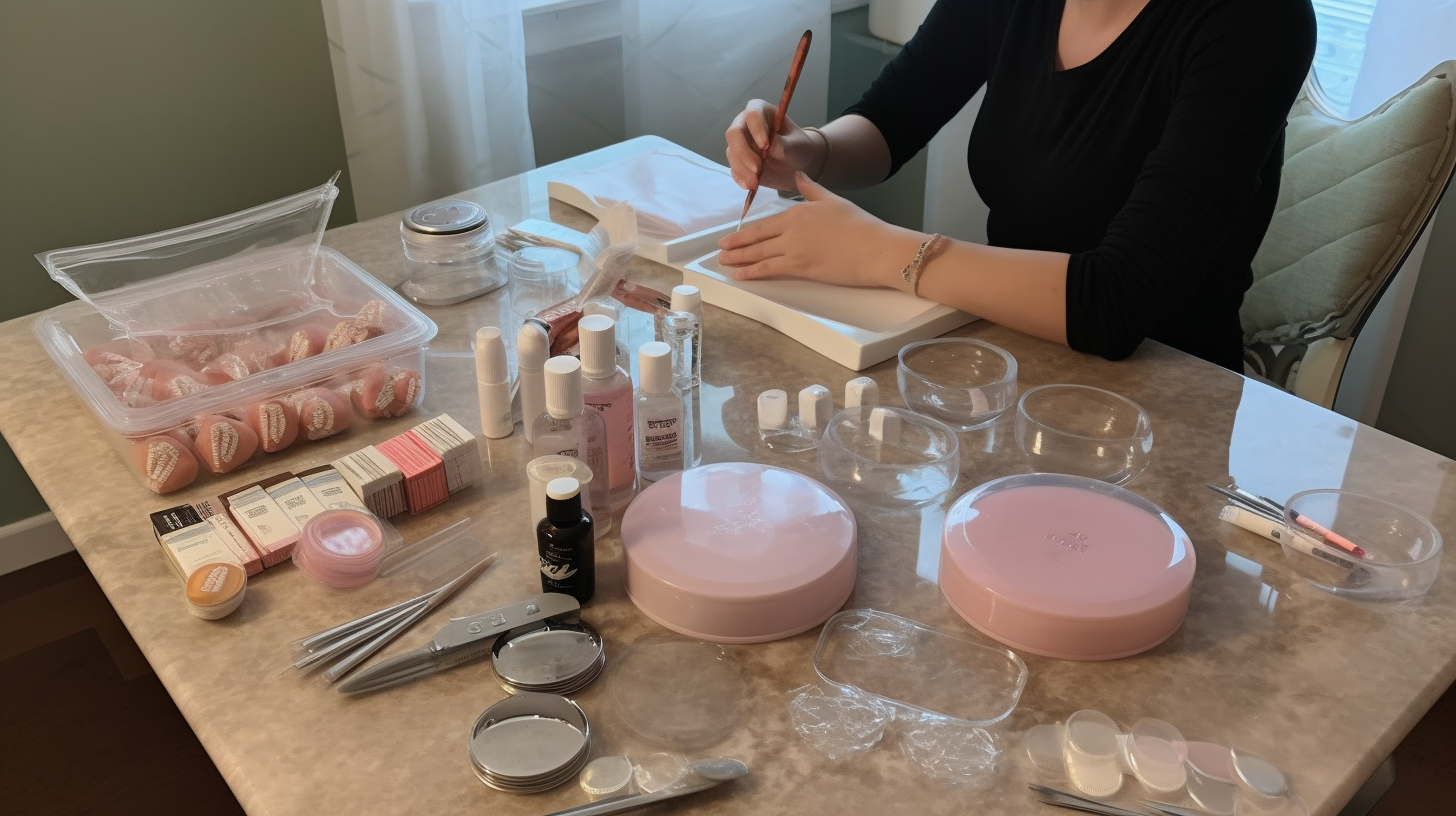Can Brittle Nails Indicate an Underlying Health Condition?
Brittle nails are a common problem that can affect anyone, regardless of age or gender. While it may seem like a minor inconvenience, brittle nails can sometimes indicate an underlying health condition that requires medical attention. In this blog post, we will explore the link between brittle nails and health problems, including vitamin deficiencies, thyroid disease, iron deficiencies, anemia, fungal infections, eczema, psoriasis, Raynaud’s disease, lichen planus, Onychorrhexis and aging factors such as dryness and chemical exposure. We’ll also provide practical tips on how to prevent and treat brittle nails to improve overall nail health.
What Are Brittle Nails?
Brittle nails are characterized by dryness and breakage of the nail plate. This can occur due to various reasons such as aging factors like decreased moisture retention in the nail bed or excessive exposure to chemicals. Brittle nails may appear dull or discolored due to a lack of nutrients like vitamins B and D which help maintain healthy nail growth.
While brittle nails can be caused by external factors such as constant exposure to water or harsh chemicals found in cleaning products or nail polish removers; it is important to note that other underlying health conditions may contribute to brittle nails.
Common Health Problems Associated with Brittle Nails
Vitamin Deficiency
Vitamin deficiency is one of the most common causes of brittle nails. Vitamins such as Biotin (B7), Vitamin B12 and Vitamin D play a vital role in maintaining healthy nail growth. A deficiency in these vitamins can cause brittle nails.
Biotin is essential for keratin production which forms the structural basis of hair and nails. It is found in foods such as nuts, eggs, whole grains and liver. Vitamin B12 is found in animal products such as meat, fish and dairy and helps to prevent anemia. Vitamin D is essential for calcium absorption in the body which helps maintain strong bones and nails. It can be obtained from sunlight exposure or supplements.
Thyroid Disease
The thyroid gland produces hormones that regulate various bodily functions including metabolism. An underactive or overactive thyroid gland can cause brittle nails due to a decrease in keratin production. Other symptoms of thyroid disease include fatigue, weight gain, and hair loss.
Iron Deficiency and Anemia
An iron deficiency can lead to anemia which is a condition where there are not enough red blood cells in the body. This can cause brittle nails due to a lack of oxygenated blood supply to the nail bed. Iron-rich foods such as red meat, leafy greens, beans, and fortified cereals can help prevent iron deficiency.
Fungal Infection
A fungal infection can affect both toenails and fingernails causing them to become brittle, thickened or discolored. Fungal infections are common in people who frequently expose their feet or hands to warm, moist environments such as swimming pools or showers. Proper hygiene such as keeping nails clean and dry can help prevent fungal infections.
Eczema and Psoriasis
Eczema and psoriasis are skin conditions that can affect the nail bed causing brittle nails. Eczema causes dryness and itching while psoriasis causes scaly patches on the skin. Treatment for these conditions may include topical creams or medications prescribed by a dermatologist.
Raynaud’s Disease
Raynaud’s disease is a condition that causes blood vessels to narrow when exposed to cold temperatures or stress. This can lead to decreased blood flow to the nail bed causing nails to become brittle and discolored. Wearing gloves or mittens in cold weather can help prevent symptoms of Raynaud’s disease.
Lichen Planus and Onychorrhexis
Lichen planus is a skin condition that can affect the nails causing them to become thin, ridged or split. Onychorrhexis is a medical term used to describe weak or brittle nails that are prone to breaking or splitting. Treatment for these conditions may include topical creams, medication or surgery.
Prevention and Treatment of Brittle Nails
Prevention and treatment of brittle nails depend on the underlying cause. Here are some tips:
Nutrition
Eating a well-balanced diet rich in vitamins, minerals and protein can help maintain healthy nail growth.
Moisturization and Hydration
Keeping your nails moisturized by using lotion or petroleum jelly can help prevent dryness, cracking, and brittleness. Drinking plenty of water can also help keep nails hydrated.
Limit Chemical Exposure
Avoid harsh chemicals such as nail polish remover that contain acetone or formaldehyde which can dry out your nails. Wear gloves when cleaning with harsh chemicals such as bleach.
Nail Trauma
Avoid biting your nails or using them as tools for opening cans or scratching surfaces which can cause trauma to the nail bed leading to brittle nails.
Conclusion
In conclusion, brittle nails may be a sign of an underlying health condition that requires medical attention. It is important to maintain good nutrition, hydration, and hygiene practices to prevent brittle nails from developing. If you have concerns about the health of your nails, consult with a healthcare professional or dermatologist for proper diagnosis and treatment.




